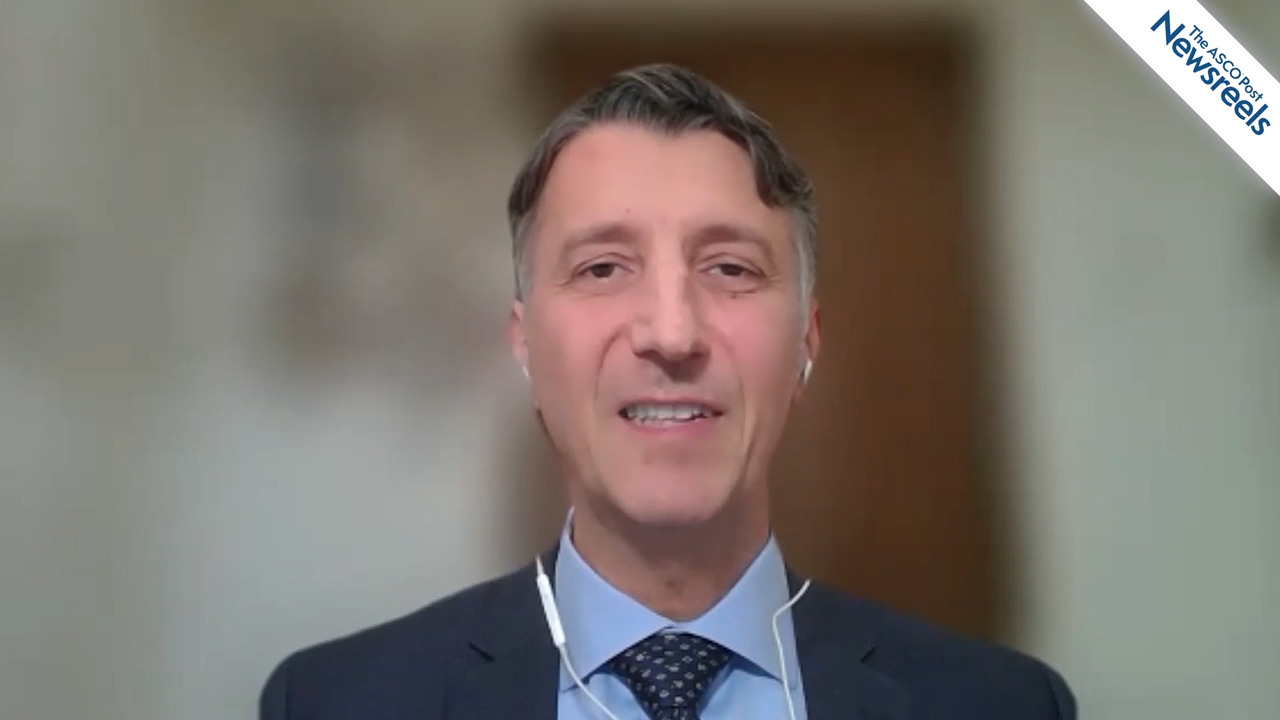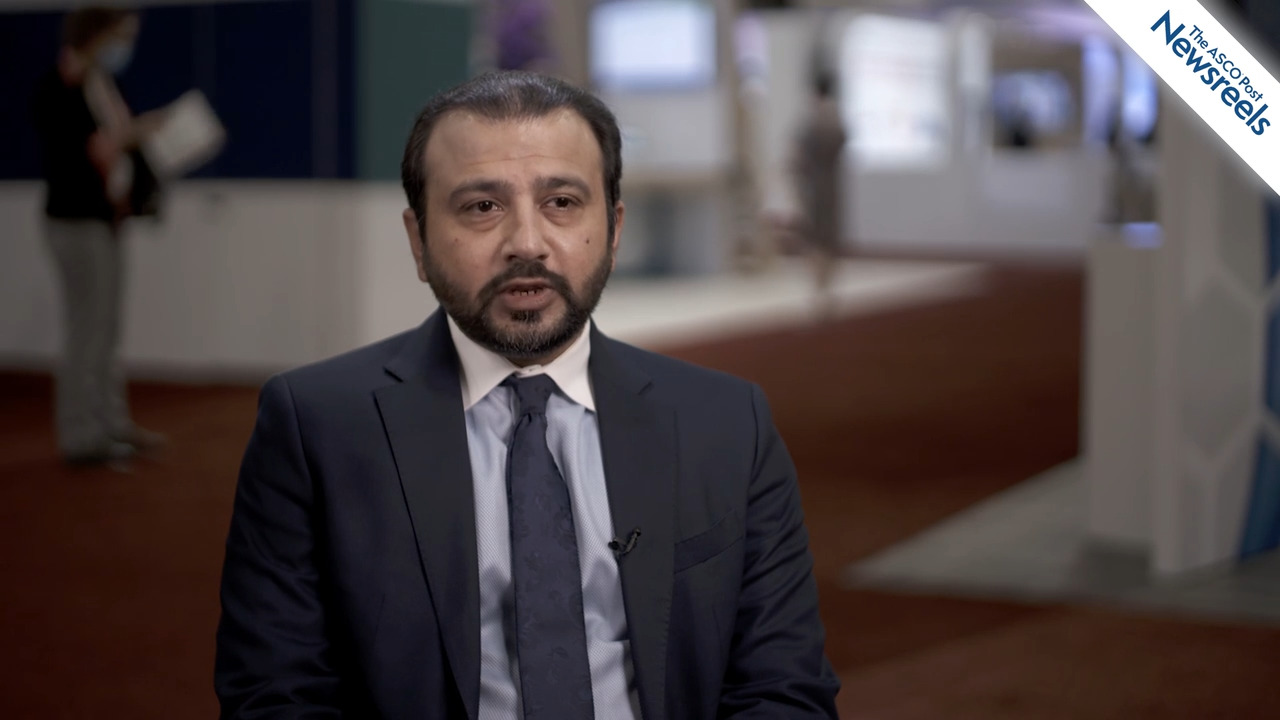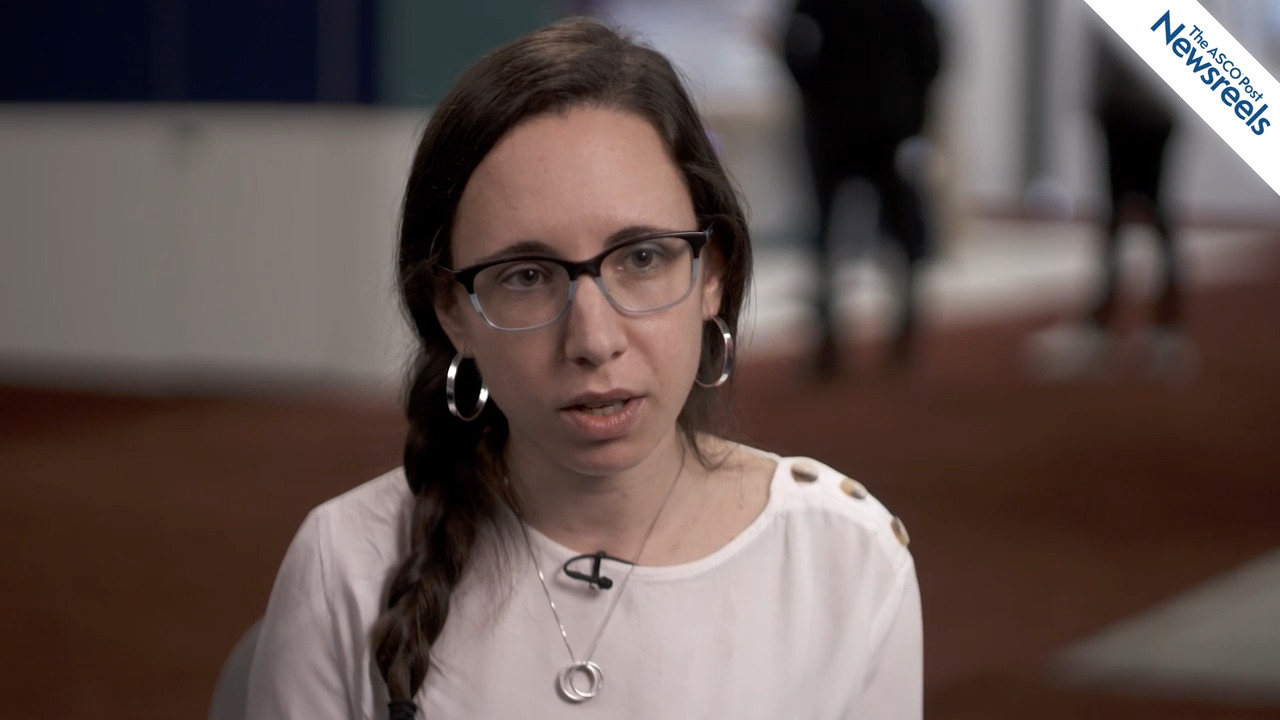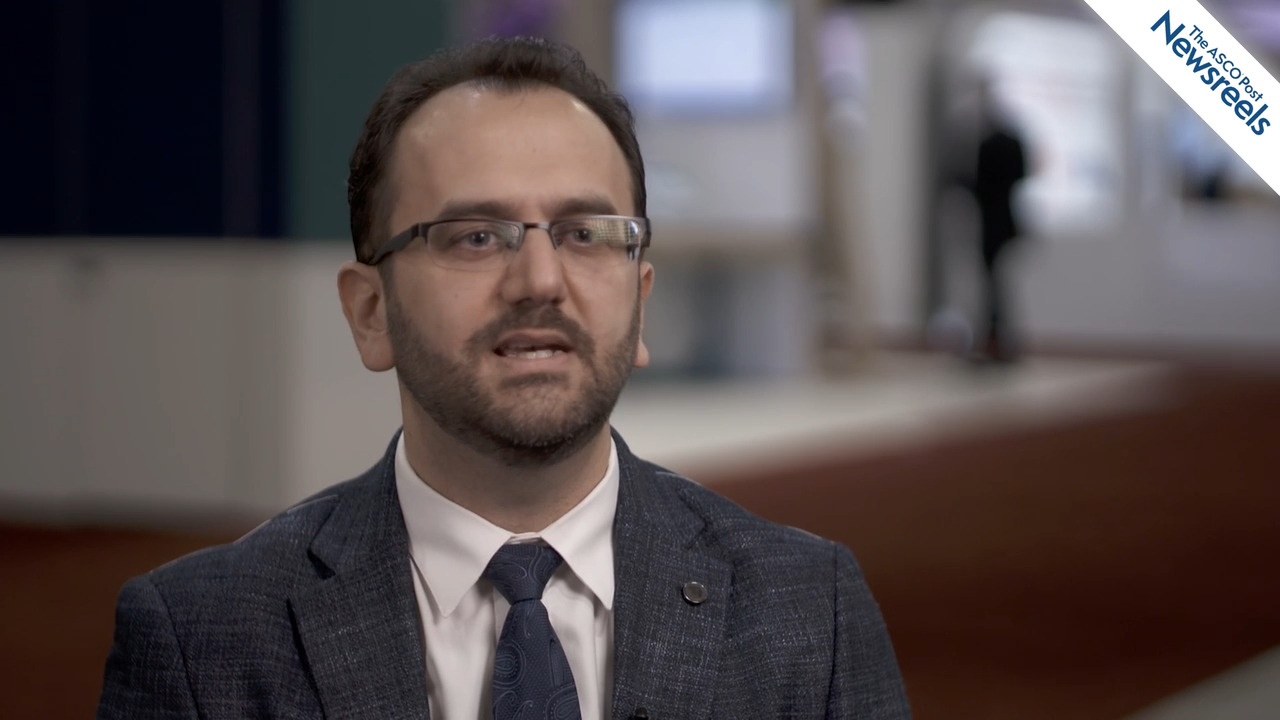Anil Aktas-Samur, PhD, on Identifying Low-Risk Smoldering Multiple Myeloma
2021 ASH Annual Meeting & Exposition
Anil Aktas-Samur, PhD, of Dana-Farber Cancer Institute, discusses study findings on the genomic characterization of non-progressor smoldering multiple myeloma, results that may provide a molecular definition of the disease as well as its risk-driving features. Combining this low-risk model with current high-risk models may possibly improve clinical trials for patients with this early precursor to myeloma (Abstract 545).
The ASCO Post Staff
Paolo Ghia, MD, PhD, of the Università Vita-Salute San Raffaele and IRCCS Ospedale San Raffaele, discusses disease-free survival results from the measurable residual disease cohort of the phase II CAPTIVATE trial. This multicenter trial focuses on first-line ibrutinib plus venetoclax in patients with chronic lymphocytic leukemia (Abstract 68).
The ASCO Post Staff
Talha Badar, MD, of the Mayo Clinic, discusses the near-universal poor outcomes for patients with TP53-mutated acute myeloid leukemia and the findings that show allogeneic stem cell transplantation appears to improve the long-term survival in a subset of these patients. Effective therapies may successfully bridge patients to transplant and prolong survival for those who are transplant-ineligible (Abstract 797).
The ASCO Post Staff
Alba Rodriguez-Meira, DPhil, of the University of Oxford, discusses a comprehensive analysis of the genetic, cellular, and molecular landscape of TP53-mediated transformation, providing insights into the evolution of chronic hematologic malignancies toward an aggressive acute leukemia. Because TP53 is the most commonly mutated gene in human cancer, these findings may well be of broad relevance (Abstract 3).
The ASCO Post Staff
Sangeetha Venugopal, MD, of The University of Texas MD Anderson Cancer Center, discusses a retrospective analysis of 562 patients with treated secondary acute myeloid leukemia and prior exposure to hypomethylating agents (HMAs). The results showed that an HMA plus venetoclax yielded significantly higher overall response rates and improved overall survival compared with intensive chemotherapy or low-intensity chemotherapy, particularly in patients 60 years or older who had a karyotype without adverse risk (Abstract 794).
The ASCO Post Staff
Musa Yilmaz, MD, of The University of Texas MD Anderson Cancer Center, discusses study results suggesting that quizartinib with decitabine and venetoclax is active in patients with FLT3-ITD–mutated acute myeloid leukemia and that RAS/MAPK mutations continue to drive primary and secondary resistance (Abstract 370).





